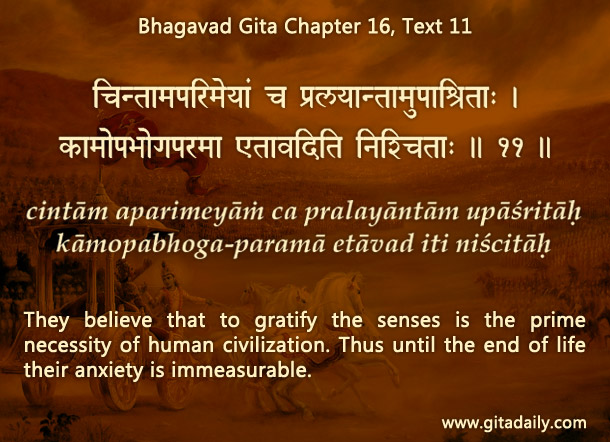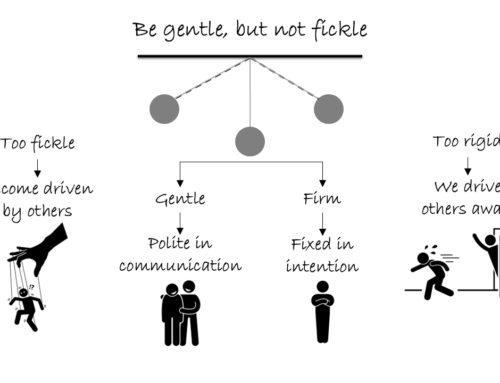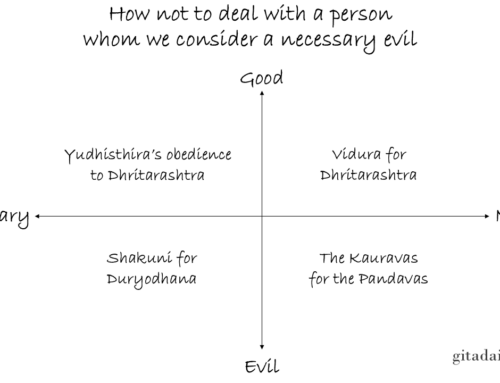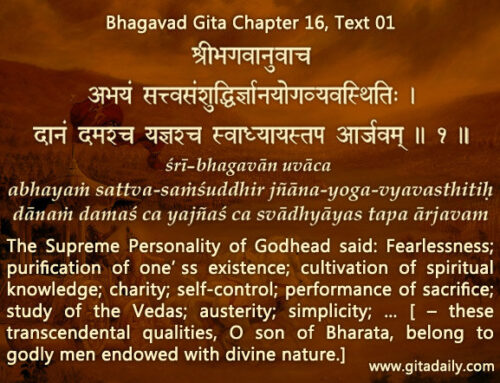Attachment sentences us to be taunted by our desires and haunted by our fears.
During the routine course of our lives, we often get attached to things, sometimes even to things that are unhealthy for us, without even realizing that we are getting attached or that those attachments are detrimental. One way to understand why certain attachments are unhealthy and to evaluate whether we are forming attachments is by examining our inner lives and noticing how our interactions with the particular object that we’re emotionally engaged with are affecting us.
Whenever an attachment is unhealthy, it subjects us to torment. First, we feel taunted by desires. The desire to indulge in the particular object—whether it be TV, social media, celebrity gossip, alcohol, or friends—becomes insistent and insatiable. Every sight of that object, or even anything that reminds us of it, starts triggering desires that taunt us. This taunting feeling comes because, no matter how resourceful we may be, we can never gratify every desire that pops up inside us. It is similar to when a rival in a sports match deliberately incites us by speaking or acting provocatively while remaining far enough away that we can’t respond without crossing lines we would rather not cross. That frustration embodies the essence of being taunted. When we understand taunting in this way, we can recognize how our attachment does indeed sentence us to be taunted by desires.
The second negative toll that attachment takes is that we become haunted by fears. When desires arise disproportionately due to the prominence of an attachment filling our consciousness, they bring fears in their wake. These fears may range from whether we will get the object we want, whether it will be as enjoyable as we expect, and whether it will stay with us as long as we would like. Over time, such fears can make us feel haunted by them as if they are ghosts.
The Bhagavad Gita points out the emotional turmoil that those who are attached endure, including desires that push them to the point of recklessness and fears that trouble them even up to death. The more we calmly and clearly contemplate and acknowledge the tolls attachment can exact, the better we can guard ourselves against unhealthy attachments.
When attachments, especially unhealthy ones, can grow subtly and steadily, often without us realizing, careful observation of our interactions with the objects we’re attached to is necessary.
Attachments can subject us to taunting desires, flooding us with insistent, irresistible urges that remain unfulfilled, and fears that keep us emotionally vulnerable to not getting or losing something desirable.
Think it over:
- Can you recollect any unhealthy attachment that developed without you realizing what was happening?
- Contemplate any time you felt taunted by desires.
- Contemplate and articulate any time you felt haunted by fears.
***
16.11 They believe that to gratify the senses is the prime necessity of human civilization. Thus until the end of life their anxiety is immeasurable.





Leave A Comment